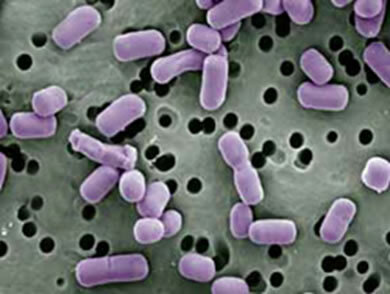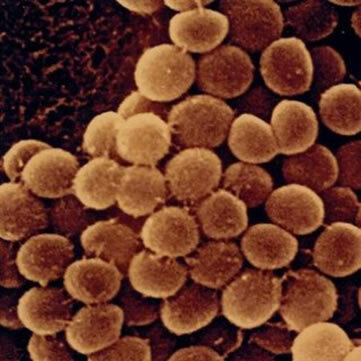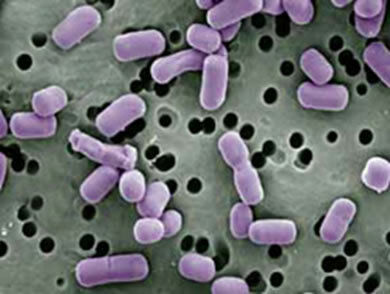Bacteria are unicellular beings, prokaryotes and very abundant throughout the planet. Some species of bacteria cause disease, while other species live in harmony with living things.
There are some bacteria that can absorb nitrogen from the air. These bacteria attach themselves to the roots of some leguminous plants, such as beans and soybeans, transferring all the nitrogen absorbed by them to the plant. With the presence of nitrogen, the plant is able to grow more and produce better fruits; and in return, the plant provides the bacteria with food and shelter. This relationship that the bacteria maintains with the plant is a harmonious relationship that favors both sides.

Figure showing the nodules on a legume root. These nodules have cells that are full of bacteria
Some bacteria are called saprophagous because they feed on decaying organic matter. They are very important for the environment, as they are capable of degrading any type of organic substance, keeping the environment clean, without accumulation of organic matter.
Certain bacteria, when going through the breathing process, produce a compound called lactic acid. This compound is widely used in the production of some foods such as cheese, curds and yogurt. Other bacteria, also through the process of breathing, originate a compound called ethyl alcohol, which is used in the production of alcoholic beverages.

Lactobacilli live in harmony with human beings
There are bacteria that live in our bodies and do us no harm. This is the case of bacteria called lactobacilli, which live in different parts of our body, such as the intestine, and prevent the development of other bacteria that cause illnesses.
Bacteria called parasitic bacteria obtain food through the bodily tissues of living beings, causing diseases such as leprosy, whooping cough, tuberculosis, cholera, tetanus, among others.

Some bacteria can cause serious illness in humans.
Antibiotics are the most suitable drugs to fight diseases caused by bacteria. Some diseases, such as tetanus and whooping cough, which are caused by bacteria, can be prevented with vaccination, but the best way to prevent many bacterial diseases is to maintain good hygiene.
Take the opportunity to check out our video lesson on the subject:


